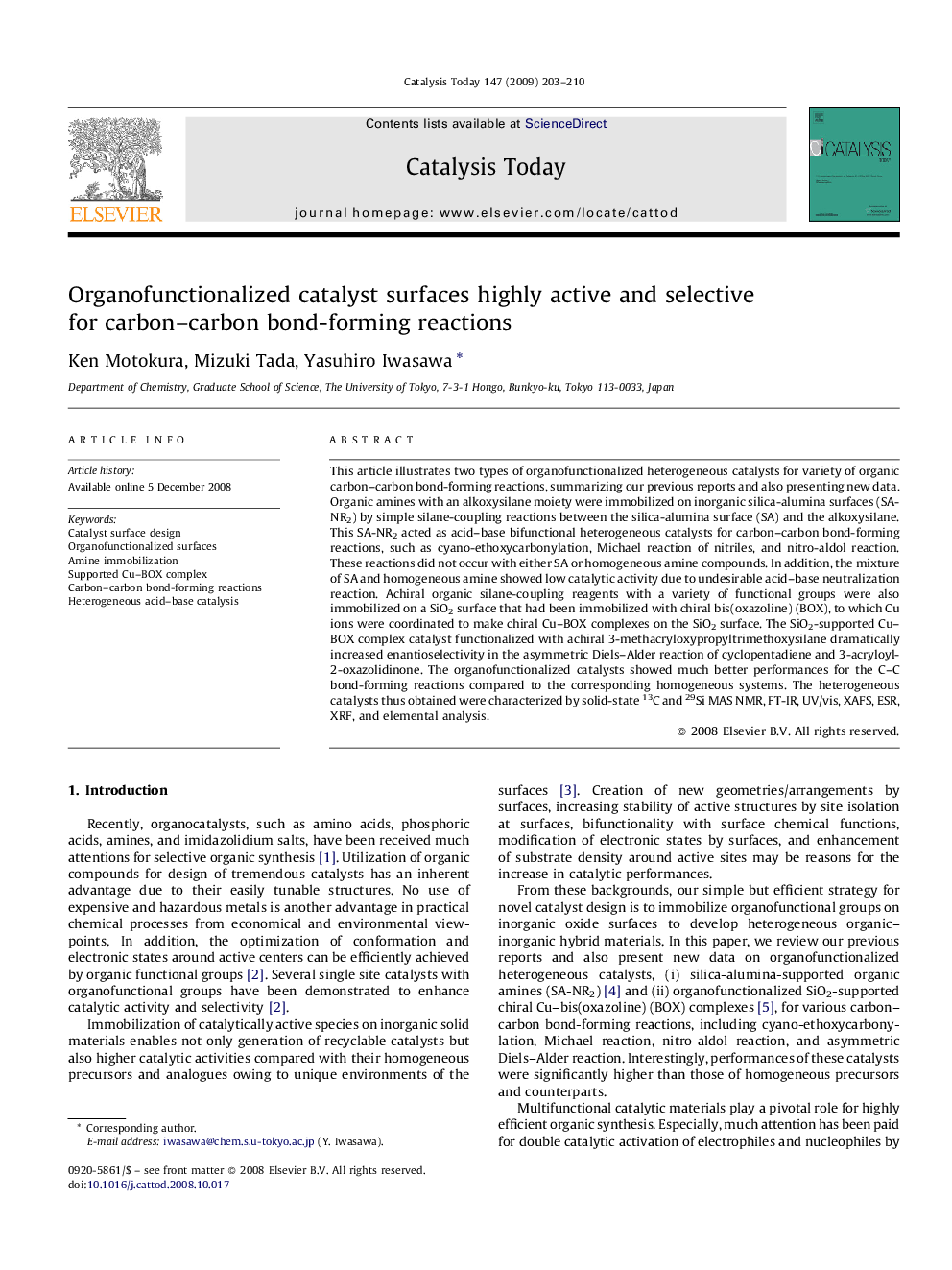| کد مقاله | کد نشریه | سال انتشار | مقاله انگلیسی | نسخه تمام متن |
|---|---|---|---|---|
| 56866 | 47098 | 2009 | 8 صفحه PDF | دانلود رایگان |

This article illustrates two types of organofunctionalized heterogeneous catalysts for variety of organic carbon–carbon bond-forming reactions, summarizing our previous reports and also presenting new data. Organic amines with an alkoxysilane moiety were immobilized on inorganic silica-alumina surfaces (SA-NR2) by simple silane-coupling reactions between the silica-alumina surface (SA) and the alkoxysilane. This SA-NR2 acted as acid–base bifunctional heterogeneous catalysts for carbon–carbon bond-forming reactions, such as cyano-ethoxycarbonylation, Michael reaction of nitriles, and nitro-aldol reaction. These reactions did not occur with either SA or homogeneous amine compounds. In addition, the mixture of SA and homogeneous amine showed low catalytic activity due to undesirable acid–base neutralization reaction. Achiral organic silane-coupling reagents with a variety of functional groups were also immobilized on a SiO2 surface that had been immobilized with chiral bis(oxazoline) (BOX), to which Cu ions were coordinated to make chiral Cu–BOX complexes on the SiO2 surface. The SiO2-supported Cu–BOX complex catalyst functionalized with achiral 3-methacryloxypropyltrimethoxysilane dramatically increased enantioselectivity in the asymmetric Diels–Alder reaction of cyclopentadiene and 3-acryloyl-2-oxazolidinone. The organofunctionalized catalysts showed much better performances for the C–C bond-forming reactions compared to the corresponding homogeneous systems. The heterogeneous catalysts thus obtained were characterized by solid-state 13C and 29Si MAS NMR, FT-IR, UV/vis, XAFS, ESR, XRF, and elemental analysis.
Journal: Catalysis Today - Volume 147, Issues 3–4, 15 October 2009, Pages 203–210